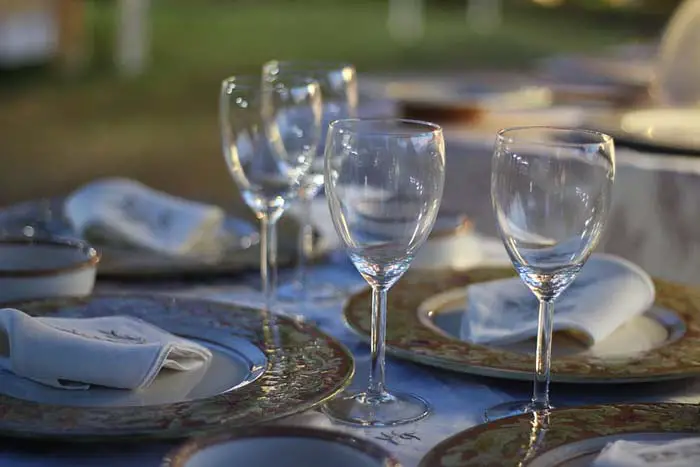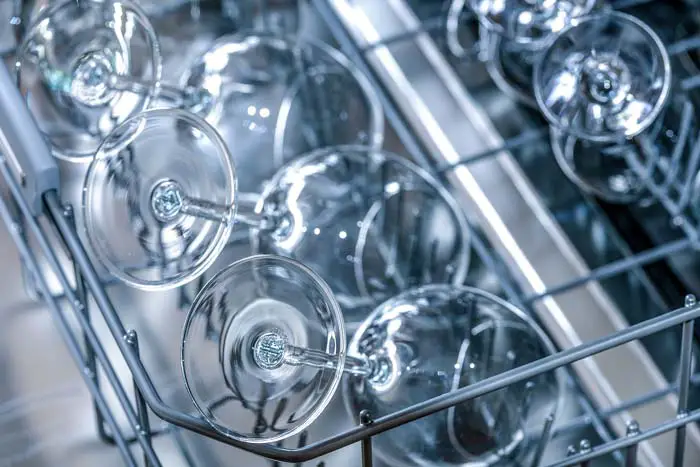Glass utensils are increasingly becoming a popular choice in the modern kitchen. This owes to the numerous benefits of glassware compared to plastics and other materials. It would be best if you were extra cautious when arranging glassware ready for storage. Not only is it important for protecting the glassware items, but it is also essential to avoid any unintentional injuries.
Tips to prevent needless breakage include;
- Don’t stack glasses that haven’t been made for stacking.
- Never put cold liquids into warm or hot glasses since this will result in cracks.
- Avoid picking up glassware in clusters; you can use a glass carrier.
- Don’t place cutlery into glasses.
Why choose glass utensils
- Glass containers are safe and healthy.
- Glassware is durable hence cost-efficient.
- Glass utensils are easy to clean.
- Glassware is environmentally friendly.
- Glass utensils preserve the original flavor of the food.
Storing glass utensils
Every home has its own different unique way of storing its glass utensils. You will likely bump into display glassware in the kitchen or the dining area. This is in line with the general rule that requires storing your utensils close to where you use them. Taking a glance from the display at sample homes, some homes store their glass utensils facing up, while others store them facing down. It is, however, not important whether you are part of a team-up or team-down.
The truth is there is no standard way to store glass utensils. However, an acceptable way to arrange your glassware makes it look appealing. A few factors to consider are the availability of space and the number of glass utensils. These tips below will help you arrange glassware in your kitchen.
How to store glass utensils in the kitchen

With the kitchen being a bustling area as well as a home to many other utensils, it is important to protect your glassware. The method you use to store your glassware is essential, especially to minimize breakage and maximize space. Stacking your glassware seems to be an ideal way to maximize your kitchen cupboard space. However, it is not always a workable option, for it bears the risk of breakage. Most glass utensils need one-by-one storage for safety. Below are some appropriate ways to store the glassware in your kitchen.
Glass jacks
Glass jacks are not only transportation gadgets but also effective for storing glassware. With the jacks, you can store the glasses singularly or while stacked, but only in cases of a large amount of glassware, though it is highly inadvisable.
Furthermore, glass jacks come in a double compartment. You can use each compartment individually to store your glassware without contact with the glassware in the other compartments. Glass jacks are ideal for minimizing damages caused by breakages and maximizing the kitchen cupboard space.
Tips when using glass jacks:
- For glasses with a stem, store them with the bottom facing up. This is because the rim of these glasses is the most sensitive part of the glass.
- Always store the glasses when they are completely dry. This way, you can avoid damage caused by leakage during storage.
- Avoid stacking glasses on top of each other in a glass jack. As an alternative, opt to buy several glass jacks to fit all your glasses. In this way, you can also save on the kitchen cupboard space.
Shelf storage
Storing your glassware on the kitchen shelves is also another option. You can arrange the glass utensils on your shelf facing up or down depending on your preference. Placing glass facing up seems to be the natural way to place it, as that is how we use the glass. In addition, it prevents the trapping of water from the dishwasher, unlike placing it down. Placing the glassware down protects the rim and prevents the entry of dirt and dust into the glass.
Nevertheless, directly storing your glassware on the shelves comes with its share of challenges. One, it also takes longer to dry and prevents air circulation. To salvage the situation, you can use shelf liners that provide better storage. Shelf liners are a raised platform, allowing air circulation and faster drying.
Racks/ suspension method
This storage method is specific for wine glasses. This may be the best option for those with limited kitchen space and few wine glasses. There are different types of racks, such as ceiling-mounted racks and under-cabinet racks. All racks have a standard way of placing the wine glasses hanging with the base facing up. This very delicate method requires minimal movements around the area and a children/pet-free area. It is also not advisable for areas experiencing frequent earthquakes.
Glassware cabinets/ Display method
In the contemporary world, most people love to put their glassware on display. The display of well-organized glassware in the kitchen makes the room look appealing. Moreover, it is a convenient location for glassware that is often used for easy accessibility.
A glassware cabinet is perfect not only for the display of your glassware but also for storage. You can place a variety of glass utensils on this cabinet. Similar to the shelves, you can have your glassware facing up or down or a combination, depending on how you like it.
On the downside, glass cabinets have limited space. This method may not be convenient for one with a large amount of glass utensils. Nevertheless, you can still use this method and an alternative method for the remaining glassware. To minimize space further, you can use the suspension method for the wine glasses by placing them on the under-cabinet racks to free up space in the glass cabinets.
Glassware storage rules
- Due to the fragile nature of glass utensils, it is important to take extra care of them to keep them safe and use them for a long time.
- Do not overcrowd your glassware, as it may cause breakage or scratching.
- Chipped glassware is risky, and you should not consume food or drinks from them.
- Place glass utensils that cannot be displayed in stemware storage chests to keep them safe for later use.
- The stemware ought to stay in an upright position seated on its base.
- Do not stack if placed upside down in a stemware rack.
- Thin protruding shapes like handles, spouts, and stems are the most fragile parts.
- The thinner the glass is, the more delicate it is to handle.
- Avoid storage in areas with extreme fluctuating humidity and temperatures that can cause cracks and damage to your glassware.
Conclusion
Now that you’ve got your favorite glassware, you should learn the right way to store them. Consider placing larger and bulkier glassware in your cabinets. Usually, if you aren’t planning to use the glassware as soon as you purchase them, always store it in its storage box until the time of use. On the other hand, recycling the boxes, you use to hold the glassware is the best option every time you use your glassware. After each get-together and banquet, wash, rinse, and dry your glassware before placing them into their boxes again.

